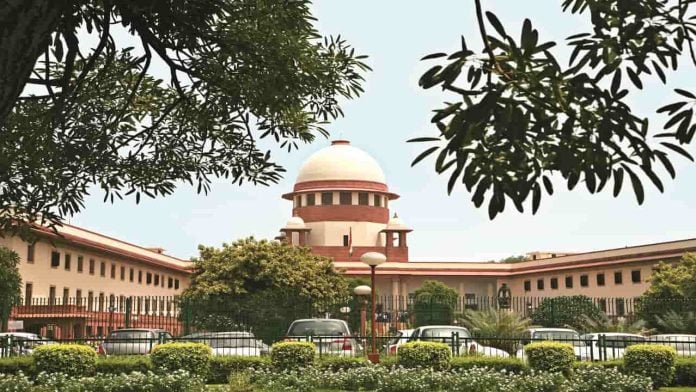The Supreme Court upheld the validity of the Tamil Nadu Highways Act, on the pretext that it cannot be struck down merely on the ground that its provisions discriminate or are arbitrary when compared with the provisions of the central law namely the Right to Fair Compensation and Transparency in Land Acquisition, Rehabilitation and Resettlement Act, 2013.
A bench comprising Justice Dinesh Maheshwari and Justice PV Sanjay Kumar said that it is possible that a State law is contrary to the central law but it would still stand protected under Article 254(2) when it receives the assent of the President of India.
The bench said that the foundation and basis of article 254(2) of the Constitution is that a state enactment runs contra to the provisions of a Central legislation on the same subject, but despite the same it would stand protected after it receives the assent of the President of India thereunder.
The bench further said that it is a foregone conclusion that disparity and discrimination would be writ large between the two enactments and aspects relating to their implementation.
Talking of the same,the court said that in such a situation, the question of comparing the two legislations, for the purpose of making out a case under Article 14 of the Constitution, would not arise. Such an exercise would be akin to comparing chalk with cheese.
In this case, the Court said that purpose of the Highways Act is that the land acquisition processes should not be protracted or ridden by avoidable delays.
The court said that there is no doubt, the scheme of the new LA Act advocates timely measures being adopted in implementation of the acquisition and such general temporal restrictions would benefit the land owners, but the absence of such restrictions in the Highways Act may not be reason enough to invalidate it, as the very premise on which the Highways Acts was enacted by the State of Tamil Nadu was to cut down on time-consuming process.
The verdict came on an appeal against a 2019 Madras High Court judgment that had upheld the Act stating that it did not suffer from any inherent arbitrariness.
However, the High Court had said that the Act was effectively void post enactment of the 2013 LA Act.
During the pendency of the appeal, the Tamil Nadu government had passed a Validation Act, which was later approved by the President. This excluded the Highways Act from the ambit of the LA Act 2013.
The appellants had based their challenge on the lack of any time limits on in the Highways Act, after which land acquisition would deem to lapse if the land is not used for the purpose it was acquired for.
The Court,held that any stray cases of delay in acquisition of land under the Highways Act will have to be dealt with on its own merits and cannot be a sufficient ground in itself to invalidate the legislation.
“There is no possibility of the State of Tamil Nadu exercising arbitrary discretion in adopting one legislation or the other for the purpose of acquiring lands …” the Court stated.
Further, the Court noted that Sections 3, 7 and 11 of the Validation Act of 2019 expressly exclude the operation of the new LA Act for the purposes contained in the State Acts which stood revived owing to the assent of the President.
Therefore, the State of Tamil Nadu would be bound to apply only the Highways Act for acquiring lands for the purposes reserved under the law, the Court held.
The appeal was, therefore, dismissed.
Advocates Suhrith Parthasarathy and N Subramaniyan appeared for the appellants.
Senior Advocate and former Attorney General for India KK Venugopal represented the State of Tamil Nadu.


